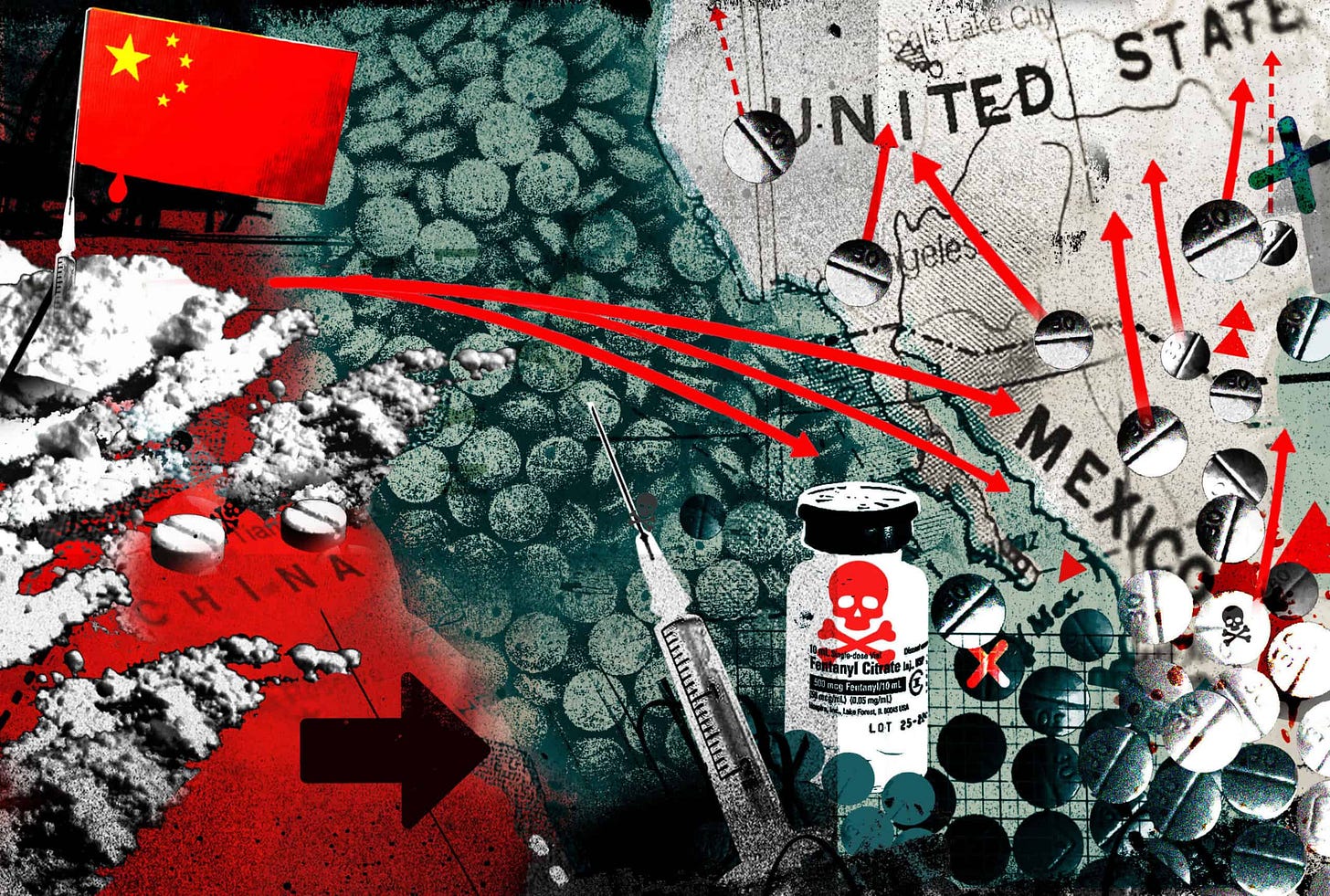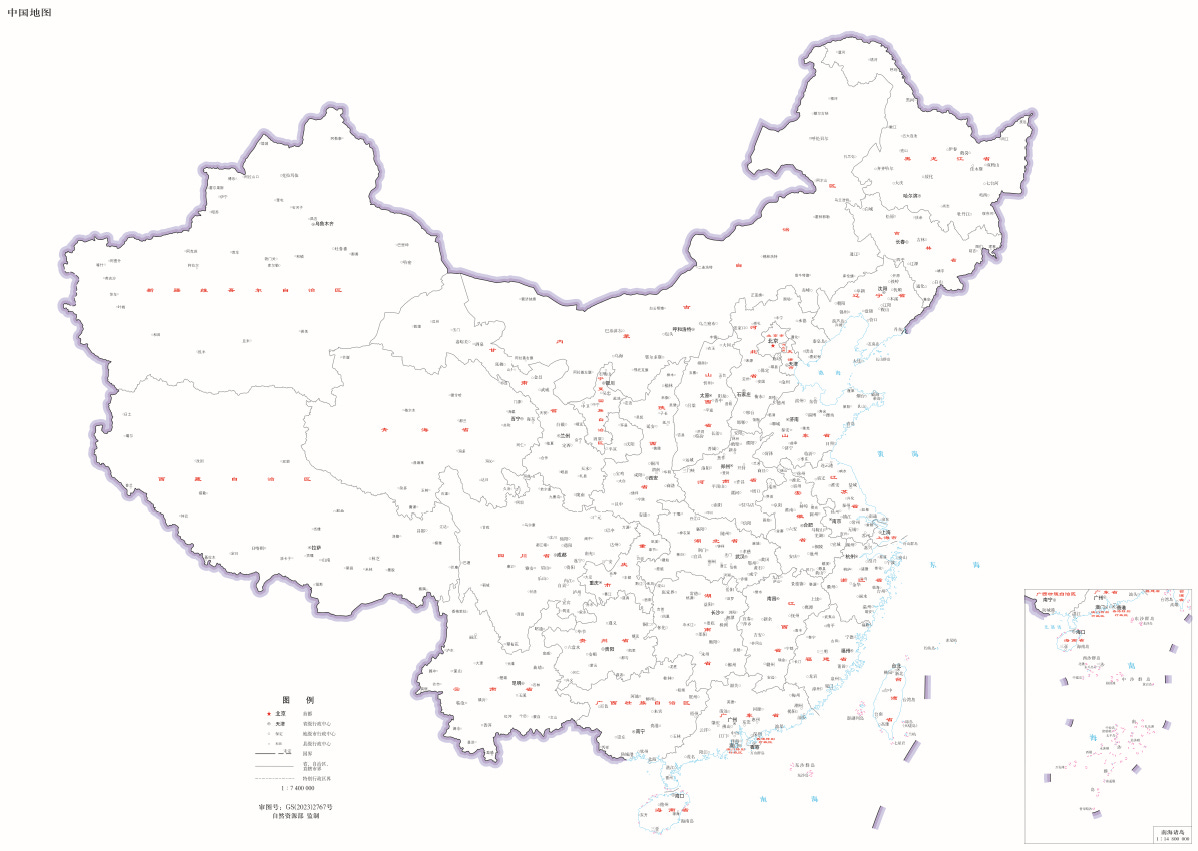Red Letters #8
Vermilion Q&A
The Red Letters series is an ongoing short form Q&A. You can find the previous edition here.
Couldn't all this conflict be stopped by the US being less aggressive in trying to curb China's rise?
We'll take the softball question. It is the US that has done the most to aid China's rise. The US and China were allies in WWIl and stopped the Japanese together. Truman was going to let PRC take Taiwan in '51 and only froze the conflict because of the PC surprise attack against NATO. Even after that, the US and PRC thawed relations in the 70s in order to freeze out the USSR, which was successful. Elder Bush very intentionally refrained from criticizing PRC for the 1989 massacre, and tamped down criticism of PRC which was otherwise widespread. Clinton then helped PRC entry into the WTO which caused the second boom in China's economy. Bush the younger worked with PRC on terrorism, Washington even recognized ETIM as a terrorist organization. Obama didn't say anything when Xi lied to his face and said the PRC wouldn't militarize South China Sea artificial islands. After all that, the PRC continues to build a massive military and bully their neighbors (US allies] constantly. Beijing has simply gone too far and outstripped Washington's good will. It's on Beijing.
The Shein IPO is coming up. How can regulators trust the numbers?
Regulators can't trust the numbers. Chinese firms have consistently resisted outside audits conducted along generally accepted accounting principles (GAAP). The US rarely enforces its own listing regulations against PRC companies, an obvious failing. If US firms did what PRC firms do, the leadership teams would be thrown in jail for fraud. When PRC firms do subject themselves to outside audits, they go full Potemkin in order to fake the audit. Luckin Coffee 瑞幸咖啡 is a great example of this. This is a story as old as time with Chinese businesses on the Mainland.
Is China's commitment to cut fentanyl in exchange for US sanctions removal significant? And would it be accurate to say that China is using fentanyl as revenge for the Opium Wars?
The commitment is not significant because we have yet to see any concrete actions from China and it is in no way a serious promise to do anything. The CCP does not keep its promises by nature. The CCP already promised to curtail fentanyl before, also under Xi, and there was no change (things actually got worse). This is all the basics of Chinese political negotiating behavior, explored in detail in a seminal Rand study. It's shocking the US State Department understands none of this.
It is unlikely this situation is revenge for the Opium Wars as that was largely (but not entirely) a British, then European affair. The experience of widespread drug use during the Qing Dynasty led to apathy, societal breakdown, and damage to the family and economic structure. Chinese awareness of these effects is likely the reason the PRC is waging a war of drug acceptance on the US (fentanyl, DTOs, TikTok, information & influence operations supporting drug use, etc.). Wang Huning identified drug use as a major challenge and weakness of American society in the 1980s. He is now one of the 7 men that rules China.
Would US rotational brigade combat teams (BCTs) in Taiwan deter the PRC or inflame tensions?
Rotational BCTs would be amongst the strongest deterrents to PRC adventurism. It would certainly inflame opinion in Beijing. The question for Washington is whether the administration wants to focus on effectiveness or engagement.
If Russia was to collapse into civil war, is there any chance China would make moves to grab land?
There is always a chance the PRC may seize Russian territory.
During the "century of humiliation," a few of the unequal treaties Beijing was forced to sign included losses of land to tsarist Russia. These territories are far more significant than many recognize. The Qing dynasty claimed all lands from the current Sino-Russian border all the way up the Uda River to Chumikan, including the entire Sakhalin Island. This would effectively give the PRC access to a new coast along the Sea of Okhotsk with access to the arctic through the Kurils. Beijing signaled some of this revanchist instinct by claiming a small Russian island near Khabarovsk in the PRC's 2023 National Map. On the other hand, Xi has proclaimed a no-limits strategic partnership with Russia in an international situation with opportunities "unseen in a century." For the time being, Beijing is getting exactly what it wants out of Russia without resorting to the risky use of force.
Why did the Dutch suddenly leave Taiwan in the 17th century? Any lasting effects?
After defeating the Spanish at Keelung in 1642, the Dutch increasingly treated Taiwan as a supporting effort (despite over 1/3 of VOC profit coming out of Taiwan). This led to shortfalls in manpower, munitions, and other critical resources. When Koxinga (Zheng Chenggong) attacked Fort Zeelandia (the main Dutch outpost) in 1661, he had a choice, either take Taiwan or be killed by the Qing on the Mainland. As a result, he threw everything he could spare at the Dutch (25k+ troops & 400+ ships to the Dutch 700 troops, 500 militia, and 5-10 ships). Both sides lost roughly half of their men and materiel in the conflict and after a year of fighting the Dutch surrendered. The Dutch came back to Taiwan in 1663, but ultimately decided the juice wasn't worth the squeeze and left. In regards to lasting effects, Koxinga's conquest of the Dutch holdings in Taiwan is the origin of the modern Chinese claim to Taiwan. If the Dutch put up more of a fight, things might look different today.
Stay tuned for our upcoming articles “What China Wants” and “ A Congressional Christmas List - Strategic Competition Edition.”



